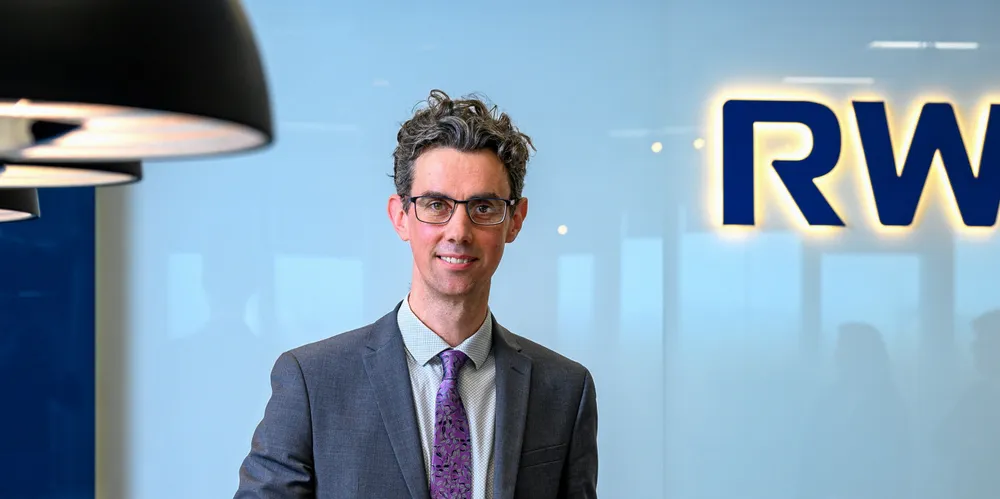RWE launches funded ‘co-use’ competition to tap into floating wind sustainability innovation
Contest offers funds to those with ideas for harmonising floating wind with fisheries and nature

German utility RWE is offering funded partnership opportunities for those with potential solutions for developing floating wind capacity in co-existence with other sea users, or while supporting biodiversity.
A competitive process to select partners for this initiative was launched today (Monday), with a deadline for submitting proposals set for 31 December, 2023.
RWE is one of the world’s leading developers of offshore wind, and is looking to lead the advance into floating wind in several global markets, including California, where it has already secured a commercial-scale floating wind lease.
The company is already involved in two major floating wind demonstration projects, potentially offering a host of research, testing and development opportunities for potential winners of the new competition.
The first of these demonstration projects, housing a 3.6MW wind turbine on a TetraSpar structure, began operations at a test site in Norway in 2021.
The second, called DemoSATH, based on a concrete platform concept designed by Saitec Offshore Technologies, began operations at a test site located about 11 miles from the Spanish port of Bilbao one month ago.
Describing its own commitment “to accelerate the development and demonstration of innovative and sustainable solutions that be specifically applied to floating offshore wind projects”, RWE stated in its announcement that it was looking for solutions to promote co-existence with other sea users and biodiversity enhancement.
Sven Utermöhlen, CEO of RWE Offshore Wind, said: “We have installed the world’s first recyclable rotor blades, signed an agreement for ‘green’ fuel service operation vessels and we are looking into artificial reefs to enhance biodiversity, to name only a few examples.
“Now, we want to further promote new technology and new ideas for floating offshore wind, which especially supporting our strategy to build biodiversity net positive offshore wind farms in future.”
RWE said it is inviting start-ups, scale-ups, research institutes as well as other individuals and organisations to propose solutions to promote co-existence with other sea-based activities to support local marine stakeholders, especially the fisheries.
The company said the same initiative will be open to proposals in the parallel domain of biodiversity as the company looks for innovations which “will minimise the environmental impact on wildlife and which have a net-positive impact on biodiversity”.
RWE said winners will get the chance to explore the value of their innovation for floating offshore wind farms with RWE’s own experts and development teams working toward floating wind projects in Europe, Asia and America.
Research grants
Winners will also eligible to a monetary research grant to further develop their ideas, as well as an opportunity to work with RWE on applied projects.
RWE added that biodiversity innovations should provide positive opportunities for local marine stakeholders, and ideally protect the marine ecosystem simultaneously.
"Those regions are going to have different stakeholders, with different kinds of ecosystems and components than we have seen before. Instead of having a large foundation on the seabed, we are going to have a floating structure, mooring lines and dynamic cables. This means, different impacts... that's not to say worse... but different impacts," he said.
"With seabed fixed, we've been building up industry understanding over decades, but with floating wind, we have an opportunity to really accelerate and get that understanding much more quickly, and then start to implement those measures on the very earliest projects."
The competition launched today is intended to connect more efficiently the innovators who have got the best ideas, he added.
"We want to engage with them to see how we can apply their proposals on our future portfolio ... we want to dedicate a budget and connect them with the RWE project teams that are going to be delivering projects around the world over the coming decades," he said.
Idiosyncracies
In addition to securing a first floating wind lease off the Californian coast, in the US, RWE has submitted a bid for the ongoing Brittany South auction, in France, and has pre-qualified to participate in the country's Mediterranean auction.
RWE is also preparing to participate in the Utsira Nord floating wind tender in Norway and in the Celtic Sea auction in the UK, and has stated that it is exploring floating wind in other European markets, America and the Asia-Pacific region.
Given this global scope, Willow stressed that the net would be cast wide enough to capture ideas considered appropriate for a diverse range of projects.
"This is not only European focused, it's about understanding how we can work effectively in different markets around the world such as California, Japan and Korea. All of these different markets are going to have their different idiosyncrasies, and we want to be identifying those ideas that can help us work well," he said
RWE's strategy includes a targeted net positive impact on biodiversity for all new projects which will be operational by 2030, so the company says it is putting resources into understanding the impacts to ecosystems, analysing the impacts of mitigation measures, including net positive outcomes.
"The second category of the competition is about how we interact better, or as effectively as possible, with marine co-users.... to find new ideas on how we can mitigate the impact and be a good neighbour," he said, giving the example of fisheries and military forces as potential co-users.
(Copyright)